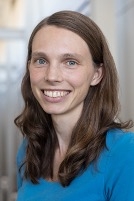
Date:
Location:
Title:
Ferroelectric materials display many fascinating properties related to their phase transitions and polarization switching behavior, and find applications in areas such as capacitor dielectrics and computer logic and memory devices. The most well-known and intensively studied ferroelectrics are perovskite oxides such as BaTiO3. In this talk, I will discuss ferroelectricity in layered perovskite oxides such as the Ruddlesden-Popper and Aurivillius phases, where perovskite layers interleave with other structural units. In these layered materials, the interplay between reduced dimensionality and coupling between polarization and other structural degrees of freedom leads to novel ferroelectric mechanisms and properties. By combining group theoretic analysis with density functional theory calculations, I will explore the ferroelectric switching processes in several layered perovskite ferroelectrics such as Ruddlesden-Popper Ca3Ti2O7 and Aurivillius-phase SrBi2Ta2O9. I will show how the (non-polar) structural degrees of freedom coupled to the polarization are key for understanding the origin of low-energy ferroelectric switching in these materials. I also will investigate adding isolated magnetic dopants to layered perovskite ferroelectrics as a means to investigate the atomic-scale limit of multiferroic behavior and magnetoelastic phenomena. Through calculations of magnetocrystalline anisotropy energies, I will show that polarization switching rearranges the local crystal field environment around the dopant atom and can be used to control its preferred spin orientation. Finally, I will briefly comment on future research directions arising from these results.
Bio:
Beth Nowadnick is an assistant professor in the Department of Materials Science and Engineering at University of California, Merced. Her research group uses a combination of group theoretic symmetry analysis, density functional theory, and microscopic models to understand and predict the properties of complex oxide materials. Beth is particularly interested in ferroelectricity, multiferroicity, and strongly correlated phenomena. She obtained her B.S. and Ph.D. degrees in physics from Stanford University and was a postdoc at Cornell University.
Hosted by Ram Seshadri. Download Event Flyer.



